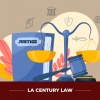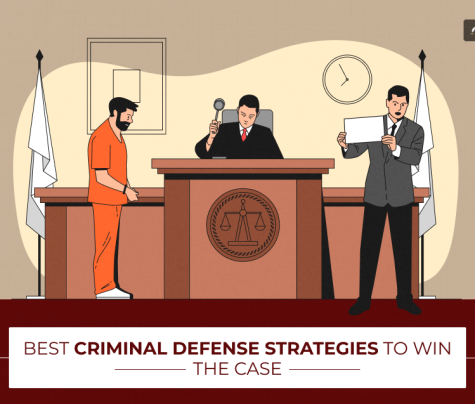
In Calgary, appealing a criminal conviction or sentence is not simply a matter of disagreeing with the outcome. To be successful, you must have valid grounds for appeal that show a significant error occurred during the trial or sentencing process.
With the support of an experienced criminal defence lawyer in Calgary, you can assess whether your case meets the legal criteria for an appeal.
Grounds for Appeal in Calgary

Below are the most common grounds for appeal under Alberta law:
Legal Errors
A legal error occurs when the trial judge misinterprets or misapplies the law during the proceedings. This could include:
- Incorrectly instructing the jury on the legal standards
- Misapplying the burden of proof
- Admitting or excluding evidence improperly
- Misinterpreting a criminal statute
Legal errors are among the most common reasons for appeals. This is because they can seriously impact the fairness of a trial and the outcome of the case.
Procedural Unfairness During Trial
Procedural unfairness refers to issues that violate a person’s right to a fair trial. This falls under the Canadian Charter of Rights and Freedoms. These issues might include:
- Bias or misconduct by the judge or jury
- Improper cross-examination or closing arguments by the Crown
- Lack of interpreter or translation services when required
- Breaches in the rules of evidence or courtroom conduct
When such procedural errors affect the integrity of the trial, an appeal may be warranted.
Ineffective Assistance of Trial Counsel
In some cases, an appeal may be based on the claim that the trial lawyer failed to provide effective representation. Examples include:
- Failing to investigate key evidence
- Not calling important witnesses
- Making serious legal mistakes or omissions
- Not properly advising the client on plea options or potential outcomes
Proving ineffective assistance is complex and requires a careful review of the trial lawyer’s performance and strategy.
New Evidence
If new evidence becomes available, it may be grounds for an appeal. These would be the ones that were not known or accessible during the original trial, and that evidence could reasonably affect the outcome.
The Alberta Court of Appeal sets a high standard for new evidence. They should:
- Be relevant and credible
- Not have been discovered with reasonable diligence at the time of the trial
- Be capable of affecting the verdict
A skilled Calgary criminal defence lawyer can help determine whether this evidence is strong enough to justify reopening the case.
Unreasonable Verdicts
A verdict may be appealed if it is considered unreasonable or not supported by the evidence presented at trial.
This means that no one could have reached the same conclusion based on the facts. Yes, not even the rightfully instructed jury or judge acting reasonably. In such cases, the Court of Appeal can overturn the conviction or order a new trial.
Types of Criminal Appeals in Calgary
Now that you are aware of the grounds of appeal and the criminal appeal process in Calgary, let me tell you something important! You see, there are several types of appeal that you should keep in mind. They are as follows:
Summary Conviction Appeal
Now, let’s say that your original case was a summary conviction offence. In such a case, judges at the Court of King’s Bench of Alberta will hear your appeal.
These typically include less serious criminal charges such as minor assaults, theft under $5,000, or causing a disturbance.
Additionally, you can initiate these appeals by filing a Notice of Appeal within 30 days of sentencing.
The appeal is generally based on errors in law or procedure, and the judge reviews the case record from the Provincial Court to determine whether the trial was conducted fairly and lawfully.
Indictable Offence Appeal
For more serious charges, the matter is prosecuted as an indictable offence.—These include:
- Aggravated assault.
- Drug trafficking.
- Robbery.
- Sexual assault.
In such cases, the jury at the Alberta Court of Appeal, located in Calgary, tries the appeal.
Issues emerging in a case of indictable crime are complex in nature and might require a three-judge panel to address them. The grounds for this appeal can also concern the conviction, the sentence, or both.
Legal representation must be highly expert if you want proper representation for the case. That’s because deadlines and procedural requirements are stricter in these types of situations.
Sentence Appeals vs. Conviction Appeals
At a criminal court hearing in Calgary, it is possible for a legal action to ask that different parts of the judgment be overruled:
- Sentence Appeal: In this situation, the motive is not that the defendant is contesting the conviction itself, but rather that the sentence given was too severe or disproportionate. The Court of Appeal will take the decision to decrease the sentence only if they conclude that it was biased, without any objective ruling positions by the trial judge, or otherwise unfair, as well as the fact that the Appellate Court will retain the jurisdiction to decide the case.
- Conviction Appeal: The accused person appeals to the appellate court to reverse the finding of guilt, usually due to mistakes such as legal errors, procedural unfairness, or the trial judge or jury making unreasonable conclusions. Where the verdict is in the defendant’s favor, he or she is either acquitted or his or her case is for the second time.
In some cases, you may challenge both the conviction and the sentence at the same time.
Crown Appeals vs. Defence Appeals
Both the prosecution and the defendant can file an appeal in Calgary regarding a criminal case:
- Defendant’s Appeal: This is an appeal initiated by the accused himself or his/her lawyer, challenging the conviction or sentence as well, and by using different arguments, such as errors of law by the judge or a legislative representative, as well as the preservation of an unjust resolution.
- Crown Appeals: The Crown prosecutor will file this type of appeal. In this, acquittals or lenient sentences will normally be attacked. To illustrate, the Crown is at liberty to appeal a sentence in case its punishment is not enough to show the gravity of the offense.
No matter if you are bringing in an appeal or a reply to one, the critical thing is to be in a position of strength by having a skilled criminal defense lawyer. Such a person will not only help you present a convincing argument but also ensure that your legal rights are protected.
Time Limits and Filing Procedures
Here are some of the things that you should keep in mind when it comes to Criminal Appeals Process in Calgary:
Strict Deadlines Under the Criminal Code of Canada
Under Canadian law, individuals seeking to appeal a criminal conviction or sentence must act quickly.
In most cases, you have only 30 days from the date of the conviction or sentencing to initiate an appeal. This deadline is rigid, and while it may be possible to request an extension in exceptional circumstances, there is no guarantee that it will be granted.
Missing this timeframe can lead to serious consequences, including the loss of your legal right to challenge the decision.
Filing a Notice of Appeal with the Appropriate Court
The initial step in the appeal process involves the submission of a Notice of Appeal to the right court.
- Summary conviction appeals are taken to the Court of King’s Bench of Alberta.
- Indictable offence appeals are processed in the Alberta Court of Appeal which is situated in Calgary.
The Notice of Appeal must be explicit about the actual grounds for your appeal and be clear as to whether you are appealing the conviction, the sentence, or both.
You may even have to bring on record some more documents or items that are necessary such as transcripts from the trial, factums (written legal arguments), and an application for bail pending appeal if it is needed.
Importance of Timely Legal Action and Documentation
Time is a significant thing in the appeals process. Delays in filing documents and evidence or getting legal arguments ready can cost you your entire case if the judges don’t like the delay of more than the normal amount of time.
According to the existing rules, the failure to adhere to the procedural requirements would be taken as a serious mistake, and, as a consequence, the court would dismiss your case without even starting a full hearing.
This is where a local lawyer might come in handy. A criminal defense lawyer in Calgary with a substantial background in appeals law can handle every form, be in court for your case, and come up with a strong legal argument to back your appeal.
Swift and flawless performance of legal tasks and explicit understanding of the legal issues would give you the perfect start when you decide to request the recourse of a conviction or a sentence in Alberta.
What Happens During the Criminal Appeals Process in Calgary
Everything has a way of working. So does the appeals process in criminal cases in Calgary. So what are they? Here’s what you should know:
Review of Trial Records – No New Witnesses or Evidence (Unless Permitted)
In most criminal appeals, the appellate court does not hear new evidence or testimony. Instead, the appeal is based on the existing trial record, which includes transcripts, exhibits, and other documents from the original proceeding.
However, in rare cases where new and compelling evidence becomes available, the court may allow it to be introduced during the appeal. These pieces of evidence include the ones that:
- Could not have been discovered earlier with reasonable diligence
- Might have an impact on the verdict.
Your lawyer can file an application to admit this new evidence, but strict rules apply.
Written Submissions Followed by Oral Arguments
Most of the appeals process requires a lot of paperwork, in the form of legal arguments, which are called factums. Each side, the one who is appealing, and the other, who is usually the police (Crown), will file legal submissions in the court.
- The factum is a summary that provides the legal basis for appeal and the arguments used to request an order to reverse or modify a decision.
- After the written presentations have been submitted, the court may decide to have an oral hearing where both parties are given the opportunity to argue before a panel of the judges.
At the oral hearing, the judges may ask questions, request explanations, and communicate with the lawyers.
A criminal appeal lawyer who has prepared well for the case should be able to represent you confidently and persuasively.
Potential Outcomes of a Criminal Appeal
At the end of the hearing, the court makes a decision whether to grant or dismiss the appeal. Various results are possible:
- Conviction Confirmed: If no severe legal errors have been disclosed, and the court decides to confirm the conviction and the sentence together, the matter ends there.
- Another Try Ordered: When the appeal is granted and it is found that the original trial was biased or violations of the law occurred, the court may order that a new trial be conducted.
- Changed or Reduced Sentence: If the appeal is based on the sentence and the court is of the opinion that the prescribed punishment was indeed severe, it can be reduced or changed.
- Acquittal Recorded: Sometimes, the court of appeal recorded the evidence as inadequate to support the case, and therefore, it acquitted the candidate immediately.
Read Also:
- How House Arrest Is Shaping Criminal Justice Reform
- 5 Common Mistakes People Make When Dealing with Assault Cases
- Hit and Run Cases: How Long Will It Take For the Police to Find Culprits?











0 Reply
No comments yet.